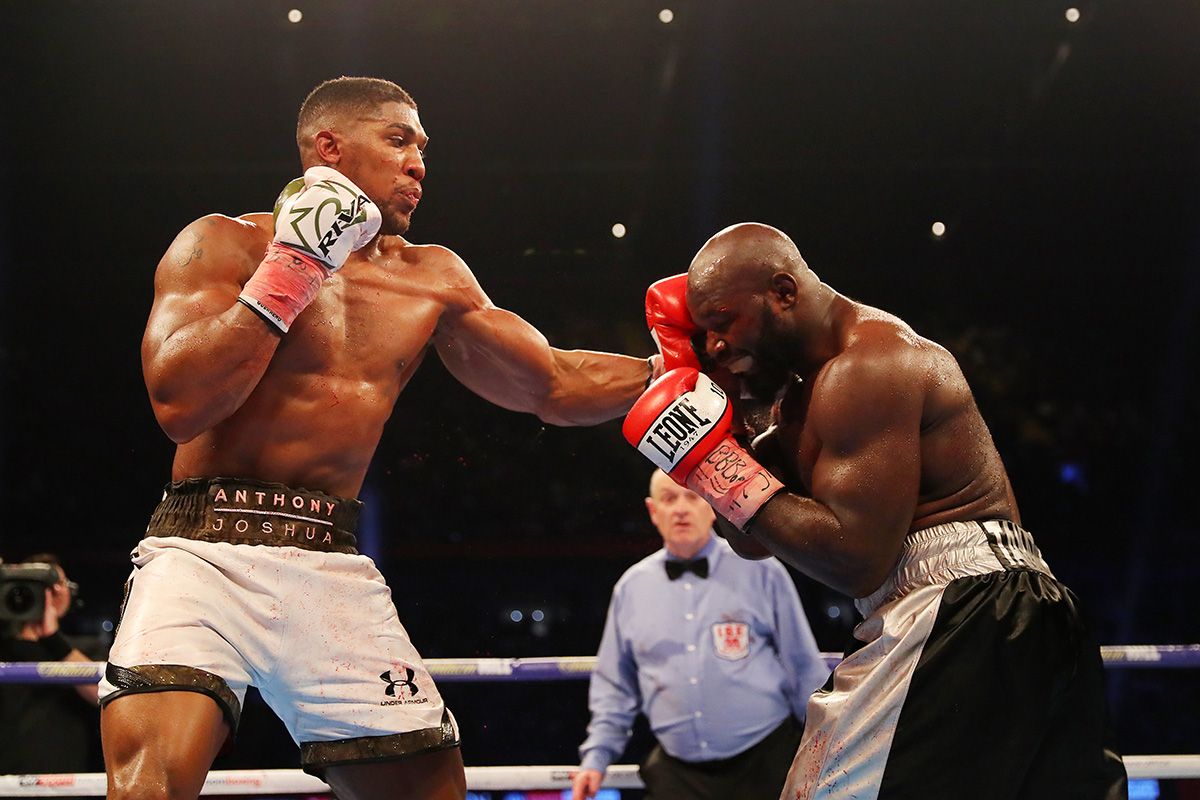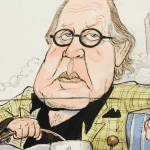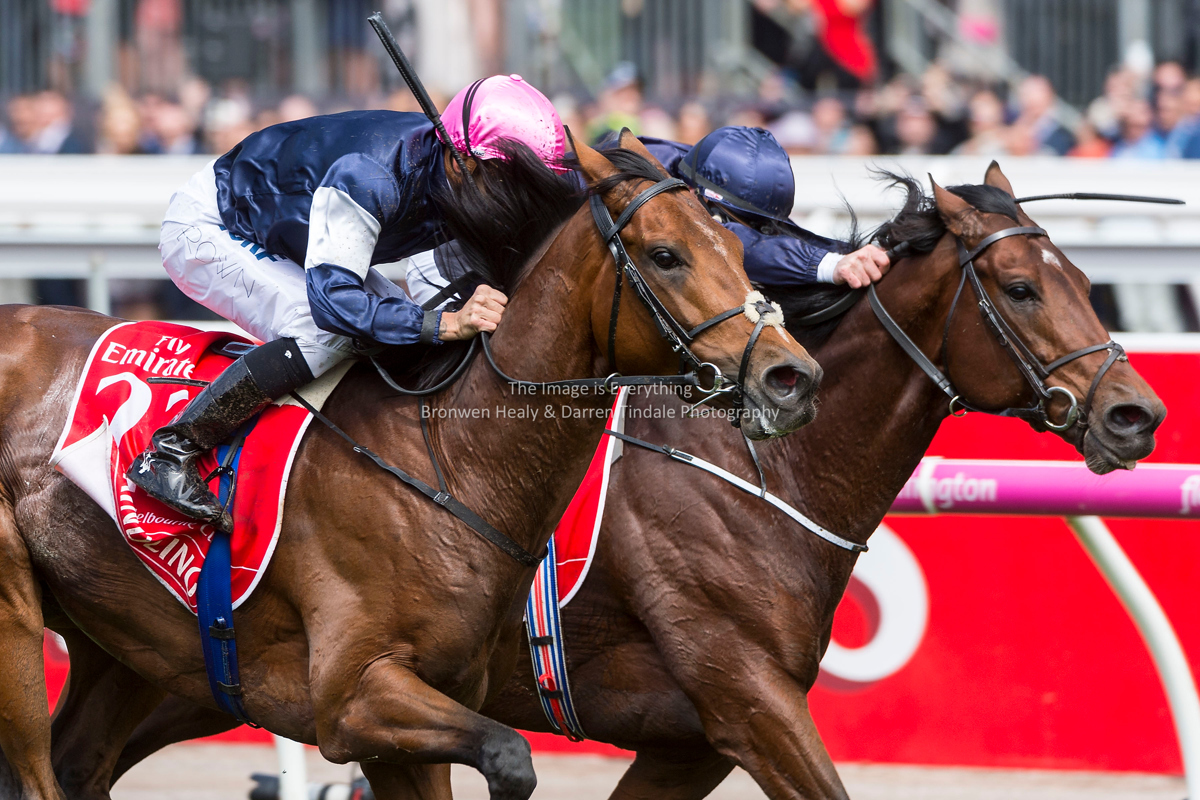PETER COSTER saw most of Muhammad Ali’s fights and remembers the master well. Now he sees another heavyweight with many of the same magical moves:
WHEN ANTHONY JOSHUA moves in the ring it is with the shadow of Muhammad Ali, the lightning jab, the combination, the feet that can dance. Or is this merely a fond remembrance of pugs past. Ali was the master, who like nearly all the great ones, stayed too long. This correspondent spoke to him at length when he was on the way down, preparing for a dubious meeting with Trevor Berbick, a 27-year-old, in the Bahamas, where people went to lie on the beach, not watch two opponents exhaust themselves in the heat.
Ali was almost 40 and had been beaten convincingly by Larry Holmes for the World Boxing Council heavyweight title only months before.
Angelo Dundee would not allow Ali to come out for the 12th round. “The Greatest” was later examined at the Mayo Clinic.
Ali admitted to tingling in his hands. His speech was slurred. Parkinson’s disease, which was to end his life years later, was taking hold. The fight against Berbick should never have taken place.
Venues in the United States refused to stage the bout in which Ali absorbed heavy punishment and lost by unanimous points decision over 10 rounds.
I had sat in a cinema in London, watching on satellite as Ali broke down George Foreman at the “Rumble in the Jungle” in Zaire, after missing a seat on the press plane
The Muhammad Ali who stepped into the ring in the Bahamas seven years later was a sick and suddenly older man.
But what I expected would be a sad interview with Ali, who had phoned the newspaper I was working for to say a fan from Melbourne had turned up at his training camp, sounded like the Ali of old.
The little guy had become his mascot. Ali said his Melbourne mate made him feel good. Ali’s voice had lost its slur. He was talking a good fight but his great skills were gone. That was obvious the year before when he lost to an old sparring partner. Larry Holmes said he held back because he had too much respect for the man to hurt and humiliate him in a bout dubbed “The Last Hurrah”. It was far from that.
Old boxers want to put their fist on the other guy’s chin, but the honest ones will admit that what they want doesn’t happen. The mind sees the punch but it doesn’t connect. They see punches coming, but cannot avoid them. Their reflexes and their speed are gone. They are unsteady on ageing legs.
In Anthony Joshua’s fights, and I have watched most of them, there is the ghost of Ali in his prime. The Ali of old in the fights against “Smokin’” Joe Frazier and George Foreman after the enforced layoff when Ali refused to answer the call-up for military service in Vietnam.
Joshua’s last fight was against Carlos Takam, who accepted the fight on 12 days’ notice when Joshua’s scheduled opponent was injured. It was not an inspiring victory for Joshua and renewed criticism of the British heavyweight after he defeated Ukrainian champion Wladimir Klitschko to add the WBA belt to his IBF title.
The WBC championship is held by American behemoth Deontay Wilder and more of that later.
The fight in April was a coming of age, or more likely a coming of rage for Joshua, whose career has been carefully managed with selected opponents who helped his development rather than threaten a boxing bonanza.
Joshua and Klitschko are towering figures at nearly two metres tall and weighing in at 113 kg and 108 kg respectively. The worst very nearly happened in round six when a right hand by Klitschko looked as if it might have ended Joshua’s unbeaten run. The young British boxer looked exhausted and came out tentatively for the seventh, the furthest he had been in any of his previous fights.
Klitschko had been beaten only four times in 60 bouts, but he was 41 years old and while in superb physical shape should have been watching the fight from ringside.
By the 11th round, it was Klitschko who was down on the end of an uppercut and down again, although rising to beat the count. He then staggered under a flurry of punches and the referee called the stoppage. There were calls for a rematch but Klitschko decided retirement was the better option.
Is it fair to compare Joshua to Ali when you consider the difference in height and weight between the two boxers?
Ali had a height advantage against fighters such as Frazier, who was only 182cm and weighed a sylph-like 93kg. Ali was 191cm and fought around 97 kg
The “Louisville Lip”, as he was known in his young days, won a gold medal at the Olympics, which he threw into a river in his hometown after being refused a seat in a restaurant because of segregation laws.
Joshua, and for that matter Klitschko, also won Olympic gold, but in the super heavyweight division. So, the comparison is skewed.
Would Ali have won against Joshua? It’s a question that can’t be answered, but the question was partly answered in the bout last month between Joshua and Carlos Takam.
Takam, at 186 cm and around 106 kg, was more the figure that Joshua would have faced against Ali. But the style and the speed of Ali dwells within the bigger boxer.
Joshua is fast. The knockdown he suffered against Klitschko proved he has something of a chin and a younger Klitschko would surely have finished the job at hand. Still, the knockdown stunned Joshua into the realisation that he was in a bout he was likely to lose if he didn’t start summoning the aggression needed to turn the fight around. He was angry with himself. It might have been less than rage, but he was a different fighter. It was controlled aggression.

Will he unify all the world heavyweight titles by taking the WBC belt from the American Deontay Wilder, the “Alabama Slammer”, next year?
I say he will. Wilder is taller at just over two metres, but lighter at 103 kg to Joshua’s 115 kg. Wilder, after demolishing Bermane Stiverne in New York in under three minutes, leaving his opponent helpless on his back, his legs buckled under him, just as quickly challenged Joshua to a showdown, bragging, “I know I’m the best. Are you up for the test?”
It was not exactly trash talk. More like entertainment: “A king doesn’t chase the peasants. A king takes kings. I want Joshua. Come and see me baby. No more dodging, no more excuses. Make the date, don’t wait.”
Sounds more like Ali than Joshua. But in the sculptured presence of Joshua
there is something of the boxer Time magazine said was the most instantly recognised human being in the world.
PETER COSTER is a former editor and foreign correspondent who has covered a range of international sports, including world championship fights and the Olympic Games.




Discussion about this post